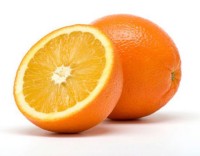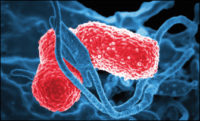You drop an organic mango chip on the floor. Does the 5-second rule apply, or do you quickly throw it away?
Or could those germs actually be good for us? Well, kind of.
The growing trend of keeping everything uber clean has literally changed the way we live, but is it good for us? We live in very clean boxes. Water is immaculate. Food is nearly sterile. Exposure to bacteria and soil is less common. The truth is, being super clean may not be good for building our immune systems.
There’s a belief that says exposing people — especially babies and young children — to different kinds of germs early in life can keep them from developing illnesses like asthma, allegies, and other diseases that affect the immune system. The theory, called the “hygiene hypothesis,” is that our bodies need “practice” fighting germs.
Our household cleaners promise to kill 99.9% of germs. Microbes are bad, plain and simple…Yet not all microbes are bad. Yes, there are bacteria that cause unpleasant or even deadly diseases, but lots of them are extremely useful and beneficial to our health.
A recent study has found that surface cleaners and other household disinfectants could be making children overweight by altering the bacteria in their gut.
Researchers in Canada found that infants who lived in households where antimicrobial disinfectants were used every week were twice as likely—at ages 3 to 4 months—to have higher levels of lachnospiraceae gut bacteria, which are very efficient at breaking down food and help the human body extract more energy. By age 3, those children were more likely to be overweight or obese than kids whose households hadn’t used disinfectants as regularly.
High levels of lachnospiraceae have been linked in animal studies to increased levels of body fat and insulin resistance. The study also found that children living in households that used eco-friendly cleaning products were less likely to be overweight, though that may have been because those kids had healthier lifestyles and diets overall.
Senior researcher Anita Kozyrskyj says further research is needed, but urges people to “take it easy” when cleaning with disinfectants. “Our observations were at the high end [of cleanliness], with people who were cleaning more than weekly, up to daily.”
You can probably lay off all the antibacterial soaps and cleansers. Even the FDA is skeptical. They are asking antibacterial soap makers to prove that the products are more effective than regular soap. There are also questions about the safety of some of the ingredients, so there may be more risks than benefits.


